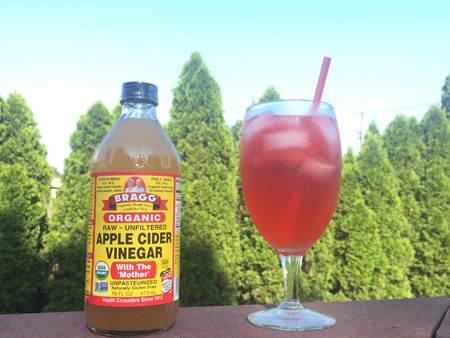
If you have ever suffered the excruciating pain of kidney stones, you definitely don’t want that experience again. Unfortunately, reoccurrence is high for this condition. Therefore, treatment options that can prevent stones from returning are in great demand. One simple home remedy that many people swear by is vinegar. While most findings supporting its use are anecdotal, those who regularly consume vinegar tend to have a reduced risk for developing kidney stones. Exactly how it works within the body, however, isn’t fully understood. Now, new research is finding that vinegar may epigenetically modify urine chemistry to prevent stone formation.
It’s estimated that one in ten people will suffer from kidney stones sometime in their lives. While most are composed of calcium oxalate (CaOx), other types form from substances such as struvite, uric acid, and cystine. If not appropriately treated, stones can obstruct the urinary tract, leading to kidney damage and, possibly, a life-threatening infection.
Vinegar has been a popular food seasoning and health tonic since ancient Babylonian times. It has also been used for cleaning, neutralizing odors, skincare, gardening, and so much more. As versatile as it is effective, vinegar’s power lies in its acidity. The principal bioactive constituent of this condiment is acetic acid, which ranges from 4% – 8% in most commercially sold brands.
Previous studies have found that acetate, an ester of acetic acid, is readily absorbed by the body and may aid in reducing kidney damage by epigenetically altering the inflammation process. Whether acetate or acetic acid from vinegar improves urine chemistry to block stone formation has not been determined. In a first-time study, however, scientists have discovered that dietary vinegar inhibits CaOx stone formation by regulating urinary excretion of calcium and citrate in both humans and animal models via epigenetics. Their findings have been reported online in EBioMedicine.
The researchers based the current study off a prior epidemiological survey they conducted in China that revealed kidney stone prevalence was lower in regions where vinegar intake is up to 50 times higher than average. Comparative urinalysis of these people showed that those who consumed vinegar daily had higher citrate excretion and pH levels, along with reduced amounts of uric acid, calcium, and creatinine waste deposits in their urine than those who did not. The vinegar users also had a lower AP(CaOx) index and AP(CaP) index, which are two scores that assess CaOx crystallization activity. These analyses together highlight a strong correlation between dietary vinegar and urine chemistry and suggest that vinegar may suppress stone formation in humans.
To examine the mechanisms responsible for this protective effect, the researchers tested vinegar’s impact on a rat model for CaOx kidney stones. They found that oral administration of the substance effectively increased urinary excretion of citrate, a known inhibitor of stone formation, as well as reduced calcium deposits. In just four weeks, daily vinegar intake was able to reduce the production of CaOx crystals in the rat’s urine significantly.

Upon further investigation, they establish that administration of the acetic acid alone could also mimic vinegar’s effects. Plus, inhibition of the specific miRNAs that mediate acetate’s effect in tissue cultured cells prompted the same results found in the rat model.
“Although vinegar contains many components that might influence its efficacy of suppressing kidney stone, a principal molecule must be the acetic acid itself,” they reported. “Acetate does so likely through epigenetic regulation of histone acetylation in addition to its potential binding to G-protein membrane receptors (GPR41 and GPR43).”
The team determined that acetate influences urine chemistry most likely through modifying histone acetylation at H3K9 and H3K27, which then activates miRNAs transcription. This process suppresses the expression of two key regulators of renal citrate and calcium excretion (CLDN14 and NADC1).
The overall findings from this study strongly indicate that vinegar consumption on a regular basis could help prevent calcium oxalate kidney stone formation. While more research is needed to validate the epigenetic mechanisms found here, it’s safe to assume that vinegar is a promising treatment option for preventing the onset and recurrence of this painful condition.
It should be noted that vinegar does have some corrosive properties and may cause adverse side effects if taken in excess or undiluted. Complications could include digestion problems, erosion of tooth enamel, throat burns, or drug interaction. It’s always best to consult a physician or a registered dietitian before beginning any dietary interventions to lower your risk for kidney stones.
Source: Zhu W. et al (2019), Dietary vinegar prevents kidney stone recurrence via epigenetic regulations. EBioMedicine, June 12, 2019.


